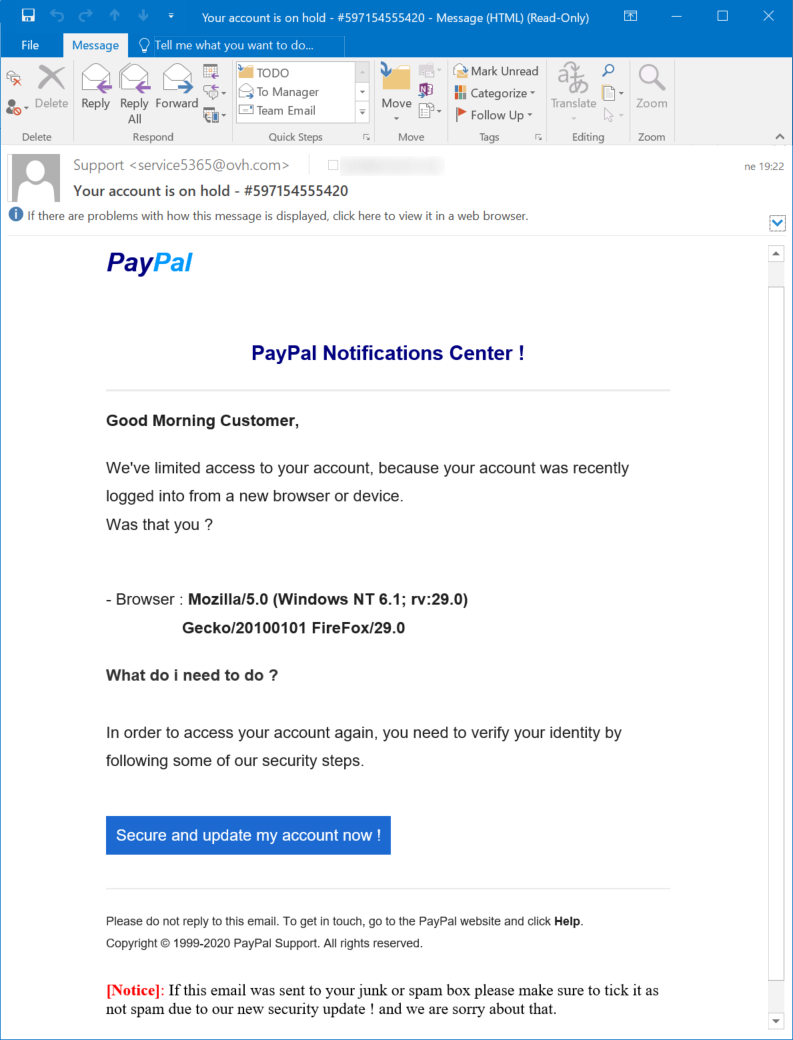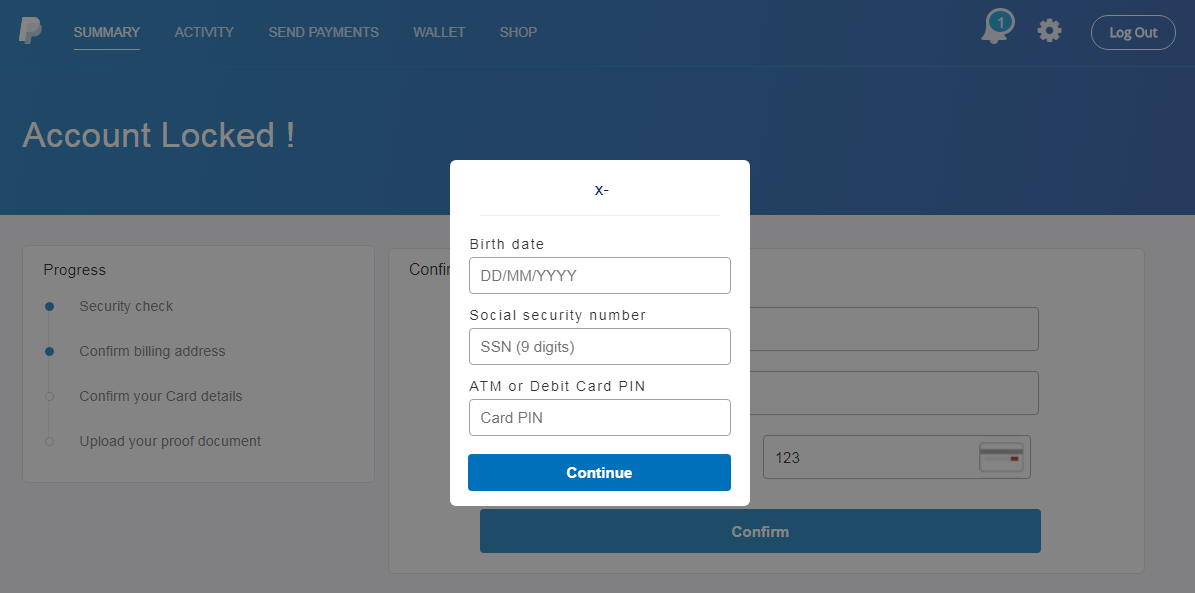A recently uncovered phishing campaign, targeting PayPal users, pulls out all the stops and asks victims for the complete spectrum of personal data – even going so far as to ask for
The campaign starts with a fairly
The ongoing campaign showcases “the current ‘let’s take all that we can get’ mentality of the attackers quite well,”

Like other phishing campaigns, this particular scam comes with some major red flags. While the initial email sender shows up under the name “Support,” a closer look at the email address shows it is from [service53659(at)ovh.com], rather than a legitimate PayPal email address. Some parts of the phishing email make strange use of exclamation points – for instance, the top of the email says, “PayPal Notifications
Also, while the landing page pretends to be a legitimate PayPal login screen with the PayPal brand at the top, the phishing page (https://www[.]leemou[.]com/files/selector/) is clearly not a
However, if victims are gullible enough to enter their credentials, a general information gathering form is then displayed. The landing page at first asks for the victims’ billing information and
If they manage to collect that information, attackers take the scam to the next level, on the last page asking victims to upload photos of their valid government issued
“What might be a bit unfortunate from the standpoint of a potential victim is that after the user uploads a file, the page is refreshed but no confirmation is displayed,”

It’s far from the first scam to involve PayPal. In November, a Utah eye clinic informed 20,000 patients that they were the victims of a data breach that happened a year and a half ago and linked patients to a scam involving PayPal. Recently, the prolific phishing gang known as 16Shop has also added PayPal customers to its target set. Kopriva said he has reported the phishing scam to PayPal. PayPal has said that legitimate emails will always come from a PayPal.com address and will also address customers by their first and last names. Emails will also never ask users for sensitive information like their bank account or password, or contain any attachments, PayPal said in a post about scams on
“Though verifying a correct sender address is important, it’s not enough. It’s important to look at the entire email,” according to PayPal. “When you check your account, always enter “www.PayPal.com” into your browser instead of clicking a link in
Phishing campaigns continue to hit businesses and personal consumers, usually using updated, tricky tactics to avoid detection or luring victims with trending themes like coronavirus and more. Contact Datum Consulting today to find out how we can help your business stand strong in the face of

